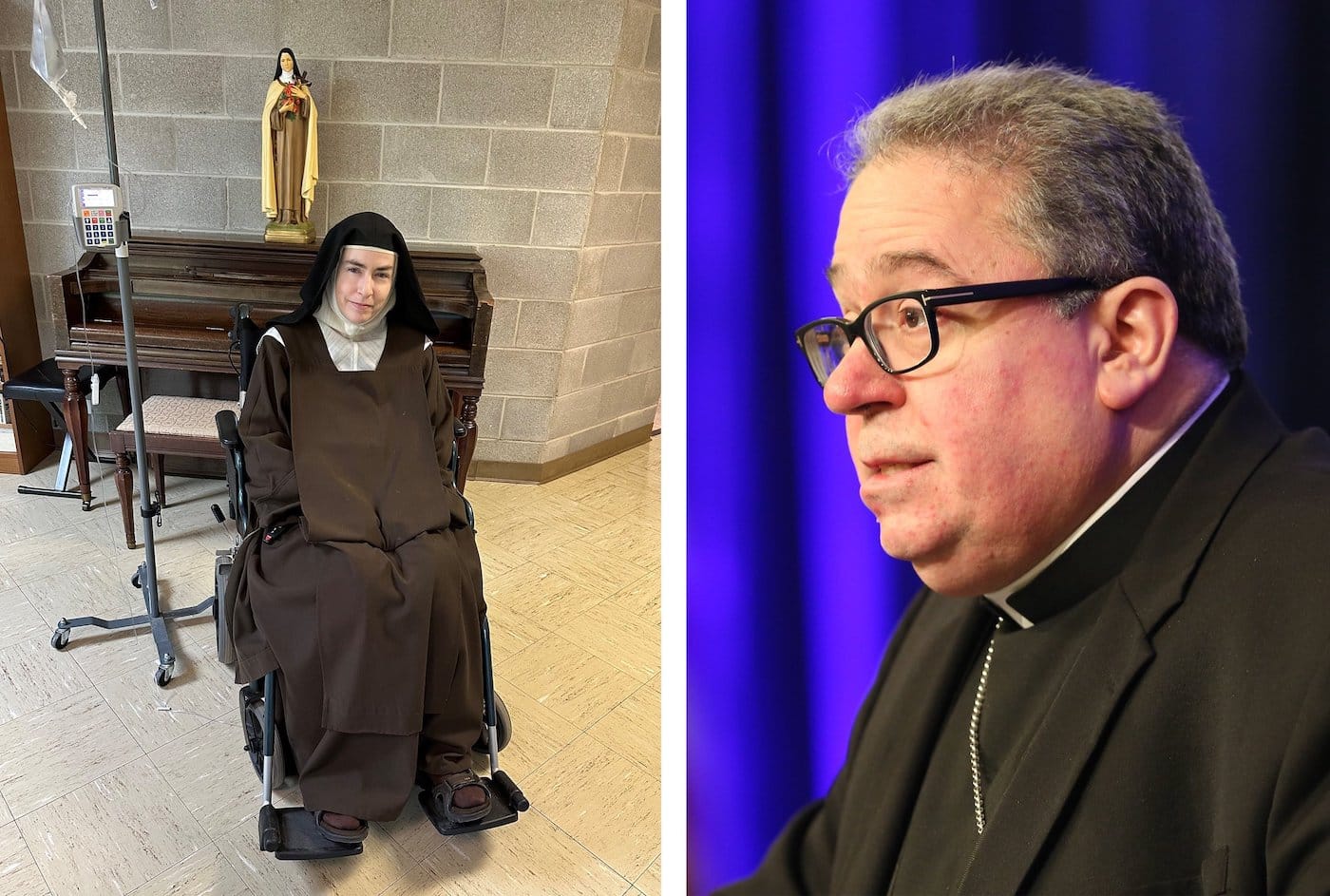WASHINGTON (OSV News) — The U.S. Catholic bishops’ conference, alongside other Catholic groups, filed suit May 22 against a federal agency for including abortion in regulations implementing a law meant to add workplace protections for pregnant workers.
Final regulations for the Pregnant Workers Fairness Act, issued by the Equal Employment Opportunity Commission in April, grant workers protections for time off and other job accommodations for pregnancy-related medical conditions such as miscarriage, stillbirth and lactation — but also for abortion, which was opposed by many of the bill’s supporters, including the U.S. Conference of Catholic Bishops.
Controversial inclusion of abortion
Chieko Noguchi, USCCB spokeswoman, told OSV News May 23 that the conference “enthusiastically supported passage of this law, because it had nothing to do with abortion.”
The conference, Noguchi said, supported the legislation’s “reasonable accommodations and things like paid time off and modified work schedules.”
“We supported that because we believe it’s important to help protect the well-being of expectant mothers and their preborn children,” she added.
“But the EEOC, which is an unelected federal agency, hijacked the law, which doesn’t mention abortion at all,” she said, adding the EEOC’s regulation is “mandating that employers accommodate employee abortions.”
As such, she said, the regulation would, in effect, force the USCCB to “knowingly support employees as they get abortions, and it forbids us from encouraging them to choose life.”
“It bans us from operating in accordance with church teaching,” Noguchi said. “So that’s why we have filed this lawsuit.”
A spokesperson for the EEOC referred OSV News to the Justice Department for comment. The latter did not immediately respond.
The EEOC regulations govern the implementation of the Pregnant Workers Fairness Act, bipartisan legislation passed by Congress and signed into law by President Joe Biden in December 2022. The law went into effect in June 2023 and prohibits employment practices that discriminate against making reasonable accommodations for qualified employees due to their pregnancy, childbirth “or related medical conditions.” The final regulations for the law were published in April 2024.
Many pro-life activists, including the USCCB, supported the legislation. But the EEOC regulation governing the implementation of that law, issued after it was enacted, contained broad language including abortion among “related medical conditions,” and the potential circumstances for which employers may have to grant workplace accommodations, such as time off for medical appointments or additional rest breaks.
In an April 15 statement about the final regulation, EEOC Chair Charlotte A. Burrows said the law “gives pregnant workers clear access to reasonable accommodations that will allow them to keep doing their jobs safely and effectively, free from discrimination and retaliation.”
Legal action and grounds for the lawsuit
Becket, a Washington-based religious liberty law firm, filed a lawsuit in the U.S. District Court for the Western District of Louisiana on behalf of the USCCB, as well as The Catholic University of America and the dioceses of Lake Charles and Lafayette in Louisiana.
The complaint, filed in in the U.S. District Court for the Western District of Louisiana, states that “Congress was right and EEOC is wrong.”
“The PWFA is not an abortion accommodation mandate. Rather, it fills a gap in federal employment law by ensuring pregnant women receive workplace accommodations to protect their pregnancies and their preborn children,” it said.
Daniel Blomberg, vice president and senior counsel for Becket, told OSV News that the case is important because the Pregnant Workers Fairness Act itself is a “really good law.”
“It’s about protecting pregnant women and their children in the workplace,” Blomberg said. “The idea is that you want to have a healthy pregnancy and a healthy childbirth, and that’s great for a healthy country. That’s why USCCB supported that law. That’s why a lot of folks supported this bipartisan law.”
But the law, he said, “has been hijacked by a partisan EEOC that is trying to use a law about healthy pregnancy to force abortion on employers nationwide, including religious employers, and that’s just not right.”
When asked what EEOC could do to rectify the issue from Becket’s perspective, Blomberg replied, “It’s an easy fix: Do what Congress said.”
“Congress said, ‘We’re here to protect pregnancy and childbirth,'” he said. “So let’s protect pregnancy and childbirth.”
“The core components of this (law) is about protecting moms protecting kids,” Blomberg added. “That’s wonderful. That’s good. We should do that.”
Catholic University’s involvement
Peter Kilpatrick, Catholic University’s president, said in a May 23 statement regarding the university’s suit against the EEOC that the school has “shown our commitment to supporting the mothers who are a crucial part of our community.” He pointed to Catholic University’s Guadalupe Project, which was created to support expectant mothers on campus, saying, “We will continue this work.”
He added that the EEOC regulation creates the possibility of “substantial liability for employers who express and enforce life-affirming policies and practices in the workplace,” and diminished religious protections.
“The Catholic University of America community remains steadfast in our commitments to upholding the sanctity of life and supporting women and pregnant mothers in the workplace,” Kilpatrick said. “We firmly reject any suggestion of tension between those two core commitments. We can — and we do — support women as they grow their families, and we believe it is possible to do so wholeheartedly while also supporting the dignity of life at all stages. Our mission to cultivate a culture of love, respect, and compassion demands nothing less.”







